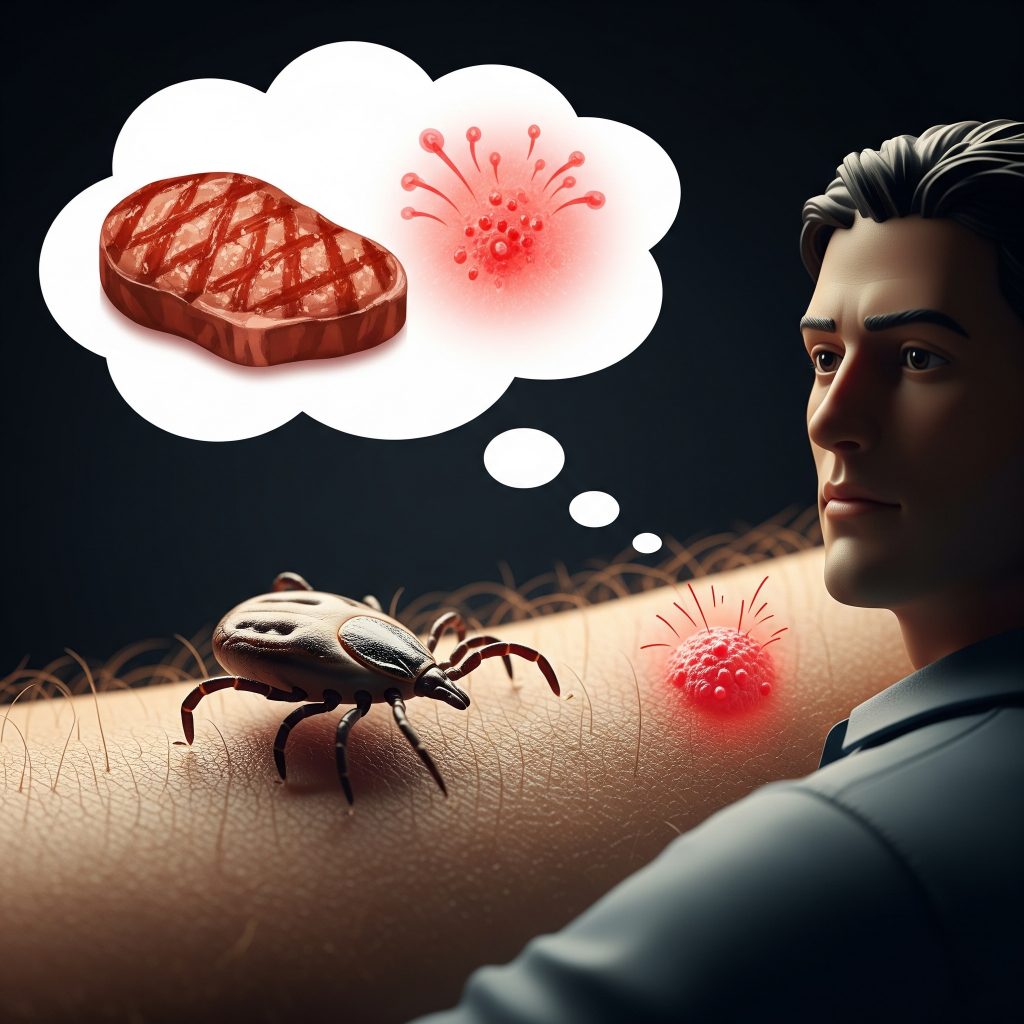Alpha-gal syndrome: How a tick bite can make you allergic to meat

Imagine biting into a juicy steak, only to find yourself covered in hives hours later, struggling to breathe, or experiencing severe gastrointestinal distress. This perplexing scenario, a delayed allergic reaction to red meat, is the hallmark of Alpha-gal syndrome (AGS). Unlike typical food allergies that manifest almost immediately, AGS is a unique condition where a sugar molecule, rather than a protein, triggers the immune response. The culprit behind this bizarre phenomenon? A tick bite.
Specifically, in the United States, the Lone Star tick is the primary vector, though other tick species worldwide have been linked to the development of AGS. When an infected tick bites a human, it injects the alpha-gal sugar molecule into the bloodstream. In some individuals, this exposure sensitizes their immune system, leading to the production of specific antibodies against alpha-gal. Consequently, when these sensitized individuals later consume mammalian meat (such as beef, pork, or lamb) or other products containing alpha-gal (like dairy or gelatin), their immune system launches an allergic attack, resulting in a range of symptoms that can vary from mild itching to life-threatening anaphylaxis, often hours after ingestion. This unusual delayed reaction makes AGS particularly challenging to diagnose, leaving many individuals unaware of the surprising connection between a tiny tick bite and their newfound allergy to meat.
Alpha-gal syndrome: How a tick bite can make you allergic to meat
słówka:
Alpha-gal syndrome: How a tick bite can make you allergic to meat – słówka